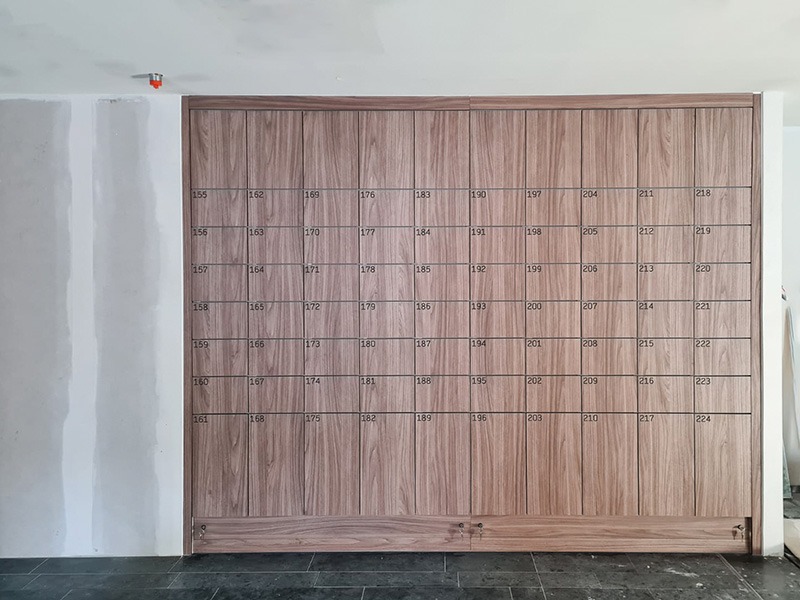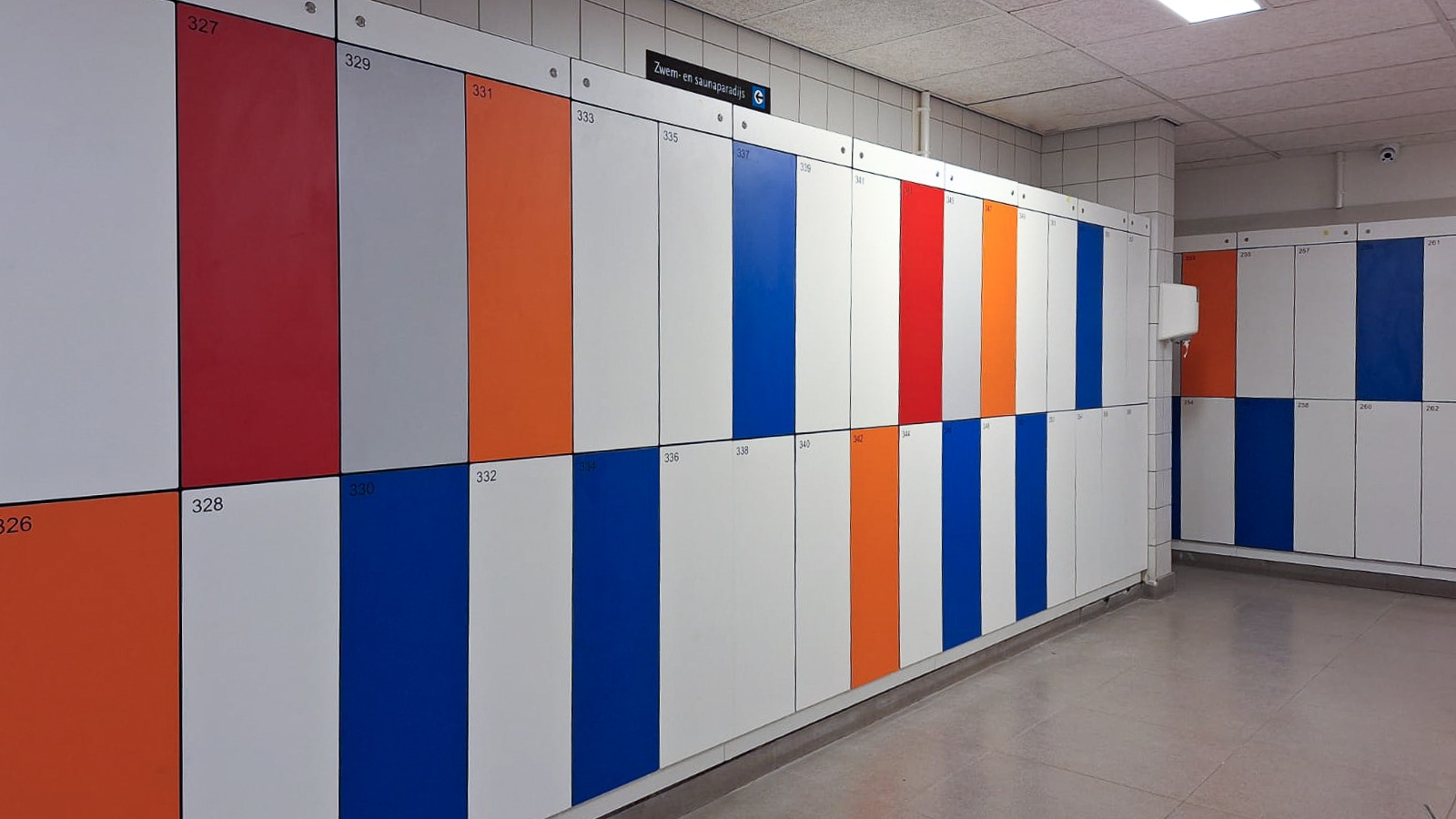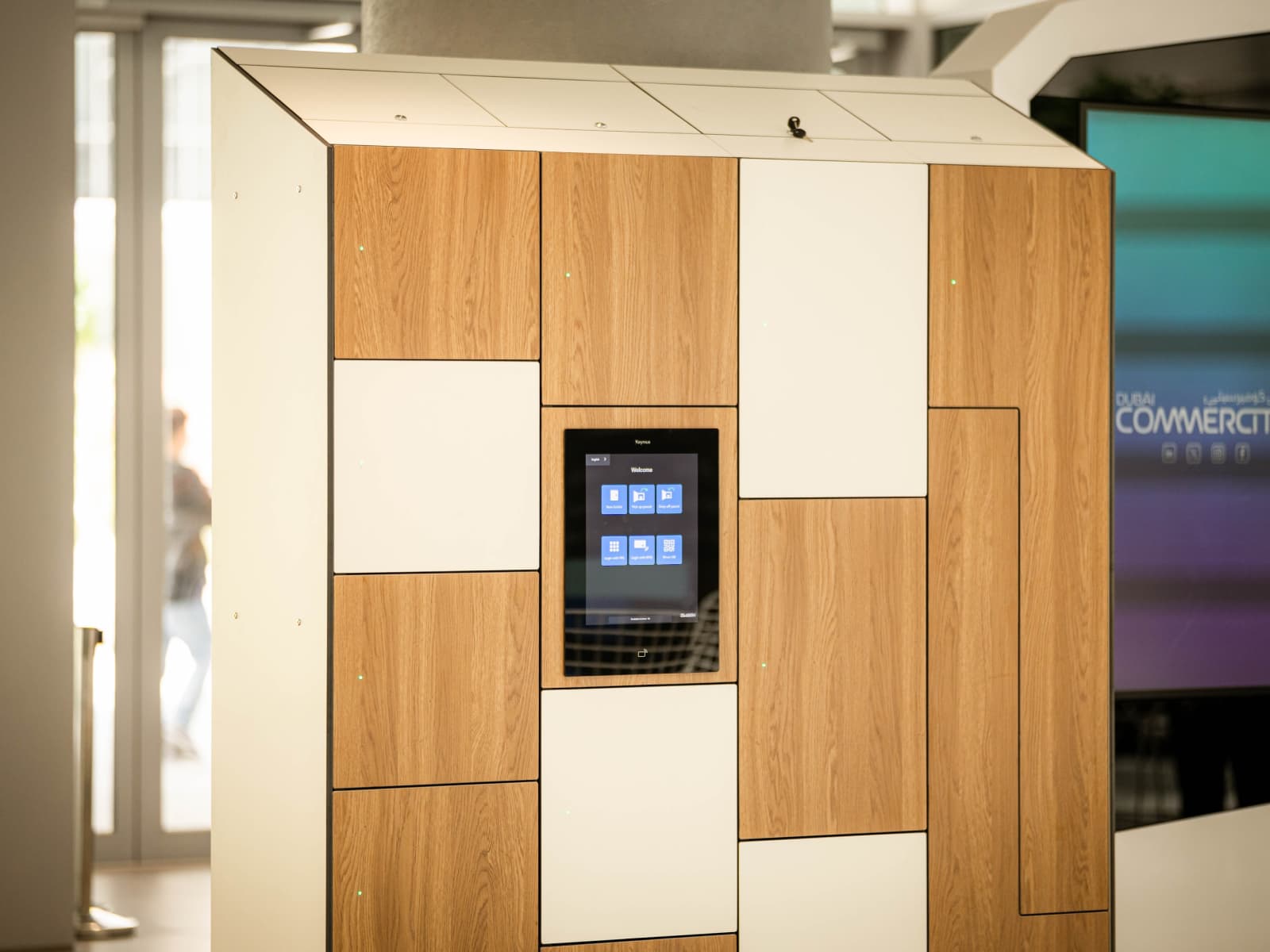In today’s fast-paced, collaborative workplace, finding the right locker system is vital. Whether it’s for storing personal items, tech equipment, or workwear, the right storage solutions offer not only security but also better organisation. With an increasing demand for well-designed, modular, and durable office lockers, selecting the right product from a trusted supplier can improve productivity and reduce clutter in any professional environment.
This guide explores key considerations when choosing lockers, including materials, finishes, security, and configuration, to help you build a smarter and more secure workspace.

1. Why Are Lockers Essential in the Modern Workplace?
Modern offices demand secure, flexible, and space-saving storage solutions. Whether staff need to store mobile phones, laptops, or personal belongings, a well-planned locker system can provide a safe and secure place.
With companies adopting hot-desking and open-plan layouts, personal locker access provides a practical way to organise and secure items. From staff lockers to shared units, lockers offer peace of mind and declutter the office space, creating a cleaner and more efficient working environment.
2. Which Office Lockers Work Best for Shared Environments?
Office lockers need to strike a balance between accessibility and privacy. Units like 6 door and nest of 2 lockers help maximise space while allowing secure storage spaces for multiple users.
You can choose from metal office lockers, laminate lockers, or even cube lockers depending on layout and function. For example, cube lockers work well near each workstation, while full-height options suit cloakrooms or corridors.
Office storage lockers can also be fitted with coat hooks, internal shelves, or digital access systems—perfect for hybrid and dynamic work settings.
3. What Are the Best Locking Systems for Office Security?
Security is paramount. The best locking options include:
- Cam lock - reliable and easy to manage
- Combination lock - user-friendly and suitable for shared areas
- Padlock fittings - flexible and low maintenance
- Key lock - secure and traditional
Many lockers are built to be customised to suit your preferred security method. Whether securing valuable items or general office storage, investing in a strong locking system is essential for workplace peace of mind.
4. Why Choose Metal Lockers Over Alternatives?
Metal lockers are the most durable solution for high-use areas. Designed using premium materials such as steel lockers or aluminium, they’re resistant to impact, corrosion, and tampering.
Offices that require long-lasting storage lockers often shop our range of metal options for their resilience, ease of cleaning, and smart appearance. For high-traffic areas like breakrooms or staff entrances, metal lockers are simply more practical and easy to maintain.
With lockers available in various sizes, styles, and colours, you never have to compromise between durability and design.
5. How Do You Customise Storage Lockers for Your Needs?
Modern lockers are designed to be flexible. You can customise them with different:
- Compartment layouts
- Locking systems
- Colour finishes
- Internal storage units like trays or shelves
If you’re managing sensitive equipment, such as laptop charging areas, consider adding power points and anti-theft features. Some businesses also include branding in the finish or use signage to support navigation around large offices.

6. Do You Need a Modular or Fixed Solution?
Modular locker systems are ideal for growing teams and evolving layouts. These units allow easy reconfiguration and can be expanded or reduced based on staffing or space availability.
Conversely, fixed office storage solutions offer long-term reliability and visual cohesion, especially in executive areas or reception spaces. A trusted supplier will guide you in choosing between modular and fixed systems based on your workspace layout and access points.
7. How Many Compartments Should a Locker Include?
Selecting the correct number of compartments is key. If you're storing workwear, you'll likely need full-height lockers with hanging space. For general personal items, a 6 door or nest of 2 format might be more space-efficient.
Offices with limited space might opt for cube lockers fitted under desks or mounted to walls, offering secure storage units without consuming floor space.
Evaluate how users interact with the space and what they need to store before committing to a format.
8. What Colour Options Work Best in Office Environments?
Visual harmony plays a huge role in modern office furniture design. Choose from a wide range of colours to align with your company’s branding or office décor.
Neutral shades help create a calm atmosphere, while bold colours can energise creative spaces. You can also colour-code lockers by department or floor, improving wayfinding and personal identification.
Laminate and powder-coated finishes offer durability and aesthetic appeal, especially in customer-facing areas.
9. What Other Features Should You Look For?
The best lockers offer much more than just secure storage. Look for:
- Sloping tops to prevent dust accumulation
- Ventilation for storing workwear or gym items
- Spare replacement keys or digital code reset options
- Heavy-duty hinges for daily use
Choosing the right lockers also means evaluating how seamlessly they fit into your office storage layout. Lockers built with quality and purpose ensure smoother use and longer lifespan.
Where to Buy Quality Lockers Online from a UK Supplier
There are many options when it comes to buying lockers online, but selecting a reputable UK supplier is crucial. The best providers offer:
- Fast delivery across the UK
- Expertise in manufacture lockers
- Support with installation and planning
- Custom designs to meet your storage needs
When evaluating office lockers online, check that the supplier provides warranty coverage and aftercare support. This ensures you're not just buying a product, but a service that delivers long-term value.
FAQ about Smart Lockers
How does the Keynius locker system work?
Keynius lockers combine smart electronic locks - smart locks and battery locks - with cloud-based software and optional local controllers via our Smart Home Teacher and Students.
Locks connect via LAN or Bluetooth to the Keynius platform, allowing users to authenticate, open, and manage lockers through touchscreens, RFID, PIN, or mobile app.
Admins control access rights, monitor usage, and configure lockers remotely via the Keynius Portal.
Can I customize the locker design and materials?
Yes. We are the only smart locking provider that owns every part of our supply chain, which includes all components, hardware, cabinetry, and software. This allows us to offer the most customizable smart lockers in the industry.
Lockers are available in multiple materials and colors:
Steel, powder-coated in standard RAL colors.
Wood-based panels with extensive Egger color finishes.
HPL laminate for high-durability indoor/outdoor use.
Outdoor waterproof steel version.
Each locker supports optional side panels, bases, benches, and color branding, or vinyl wrapping, as well as your selection of lock type, connection type, and many other custom add-ons.
Is the platform cloud-based or do I need local servers?
The Keynius platform is fully cloud-managed, requiring no local servers. Hardware like Smart Home Teacher/Student units and Battery Locks connect to the cloud via LAN or Bluetooth and are configured through the Keynius Portal or App.
What authentication/access methods are supported?
Supported authentication methods include:
PIN (capacitive keypad or mobile-assigned)
RFID (MiFare, HID, NFC, Apple Wallet)
Mobile app (BLE) for remote and Bluetooth access
QR code scanning (QR Reader IP65)
Payment terminals can optionally authenticate via debit/credit contactless systems.
How secure is the system and where is the data hosted?
Hardware is certified to CE, FCC, UKCA, and RoHS standards, with IP-rated protection up to IP65 for outdoor units.
Locks feature encryption, motorized mechanisms, and mechanical overrides for fail-safe access.
All data, including access logs and credentials, is stored securely in Keynius’ EU-hosted cloud environment compliant with European data protection standards.
Can Keynius integrate with our existing software?
Yes. The system offers open APIs for integration with HR, facility, payment, or booking systems. Payment terminals support remote configuration through the Terminal API.
View our existing integrations here.
What industries or use cases is Keynius suitable for?
Keynius offers a modular, flexible design which makes it compatible for nearly every industry and use-case.
Our most common sectors include:
- Corporate offices (personal storage, hybrid desks)
- Education (student lockers, IT device storage)
- Logistics and retail (parcel and click and collect)
- Leisure, hospitality, and healthcare (staff or visitor lockers)
What’s included in the setup and onboarding process?
Every project is different and requires its own scope, but we strive to offer a consistent and repeatable solution as much as possible to streamline our effectiveness and the quality of service we're able to deliver.
1. Design phase: Configure cabinet models, lock types, and finishes.
2. Installation: Connect Smart Locks to the Smart Home or cloud (plug-and-play).
3. Software setup: Locker walls created in the Keynius Portal; access rights assigned.
4. Training: Admins and users onboarded via the app guide.
5. Support: Remote monitoring, software updates, and Keynius support line.






%201.svg)
%201.svg)
